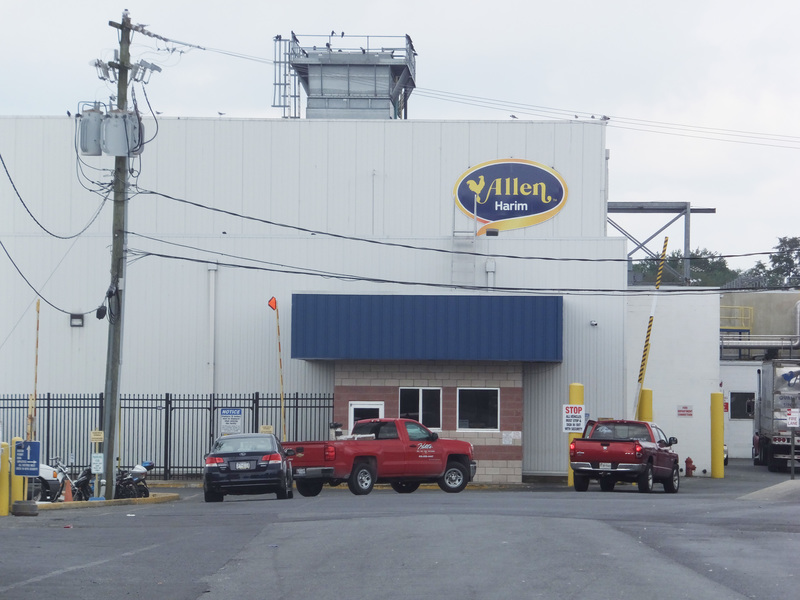Allen Harim awarded $11 million state loan for Harbeson plant
Allen Harim was unanimously approved for more than $11 million in loan funding for a wastewater treatment plant upgrade at its Harbeson facility.
The loan, approved by the state Water Infrastructure Advisory Council Aug. 19, was the second bit of good news of the last week for Allen Harim.
Allen Harim’s loan includes $8.3 million to upgrade the Harbeson facility’s on-site wastewater treatment plant and an additional $3.2 million to build a wastewater reuse system.
According to Allen Harim’s proposal, the water reuse facility would be able to treat 1 million of the 2 million gallons per day produced by the upgraded wastewater plant.
Allen Harim CEO Steve Evans said the loan will help the company rebuild and expand the infrastructure of the Harbeson plant.
The company plans to increase production capacity from 175,000 chickens processed per day to 393,000 per day. The wastewater treatment plant expansion would increase the plant’s capacity from 1.25 million gallons per day to 2 million per day.
Evans said water reuse will decrease the daily volume of fresh water the Harbeson plant uses.
The council approved the 15-year loan at 2 percent interest.
The company released a statement saying, "This step will both help to assure that the company remains well in compliance with DNREC regulations and uphold our commitment to being a good steward of our region’s natural resources."
Court upholds ruling on Millsboro plant
On Aug. 14, Delaware Superior Court Judge Richard F. Stokes upheld a state Environmental Appeals Board ruling that allows the South Korea-based chicken company to move forward in renovating the former Vlasic pickle plant in Millsboro into a chicken processing plant
Allen Harim has entered into a brownfields development agreement with the state, which required the company to investigate potential hazardous contamination of the site. DNREC Secretary David Small approved Allen Harim's proposed plan, allowing the company to move forward.
Plant opponents Protecting Our Indian River and the Inland Bays Foundation appealed Small’s decision to approve the plan to the Environmental Appeals Board. After the board upheld Small’s decision, the two groups appealed to Delaware Superior Court. They claimed Allen Harim’s plans violated the state’s Hazardous Substances Cleanup Act and that the record did not support the board’s findings.
“Harim adequately investigated the nature and extent of potential releases by performing various investigations,” Stokes wrote in his opinion. “The record reflects Harim undertook a comprehensive investigation on the site in order to assess the condition of the site and determine the nature and extent of a release, if any occurred, on the property.”
The plaintiffs argued Allen Harim did not investigate potential off-site contamination, although there are three housing developments in the immediate vicinity. Stokes said Allen Harim was not legally bound to conduct a full-blown investigation beyond the perimeter of the property.
“The perceived concerns raised by appellants are insufficient to support a finding that EAB’s approval of the final plan of remedial action was inconsistent with HSCA and an error of law,” Stokes said.
Ryan Mavity covers Milton and the court system. He is married to Rachel Swick Mavity and has two kids, Alex and Jane. Ryan started with the Cape Gazette all the way back in February 2007, previously covering the City of Rehoboth Beach. A native of Easton, Md. and graduate of Towson University, Ryan enjoys watching the Baltimore Ravens, Washington Capitals and Baltimore Orioles in his spare time.
























































